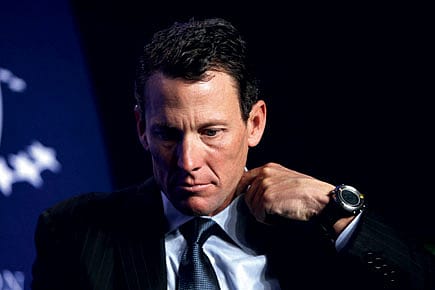It’s Not about the Doping

Lance Armstrong the cancer survivor remains a hero
Performance enhancing drugs have vitiated sports. You no longer know which athletes to trust, or whether to trust them at all. One can never be sure whether the reason behind an athlete’s prowess is honest skill and sweat or whether it has been helped by something little on the side.
Of all sports, cycling is most notorious for doping. If you collect all the syringes used by Tour de France contestants so far, there will be enough to make a neat replica of the Eiffel Tower. The men who will now inherit Lance Armstrong’s seven Tour titles themselves are doping suspects.
Armstrong’s feet pedalled the sport over mountains, down slopes and onto front pages. But now they have trampled on it. There are many who question the intentions of the US Anti-Doping Agency (USADA), the organisation that made doping charges against Armstrong, which he declined to fight, leading the USADA to disqualify his titles. But it would be difficult for any organisation—however vindictive or mendacious—to pass such a strong judgment against such a big star without some evidence. Armstrong the cyclist has fallen. Those who looked up to him, and drew inspiration from his famous biography—It’s Not About the Bike—must accept this. Yuvraj Singh, who was thrilled when his battle with cancer received the blessings of Armstrong, cancer survival’s poster boy, must now feel let down.
Modi Rearms the Party: 2029 On His Mind
23 Jan 2026 - Vol 04 | Issue 55
Trump controls the future | An unequal fight against pollution
But Armstrong the cancer survivor will continue to be a hero. There are more cancer patients in the world than cyclists. Armstrong not only outpedalled the disease, he returned to top flight sport. That in itself is a remarkable story. Secondly, all doping does is help you train harder and gain an edge over rivals. This is not to condone doping, just to remind ourselves that you still need to have high skills and physical levels. Besides, and most importantly, Armstrong was not content with getting his life and career back on track. He set up a foundation, he poured energy and time into it and raised millions for genuine causes. Armstrong was never Mr Congeniality. Given a choice, he’d ride his bike, go home and shut the world out. But cancer and his projects afterwards brought out his humane side. For individuals and families cursed with the disease, that is enough. For them, it’s not about the doping.
